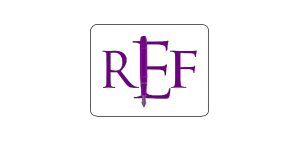Ruth Ford Elward's Blog, page 9
November 13, 2014
Why Are We Drawn to Mystery Novels? Part 2 of 2
For freely offered writing Resources go to RuthFordElward.com
Generally, diverse mysteries are stories set around a wrong doing (especially in the case of paranormal mysteries), or it could be a crime or a murder or theft. Some of the traditional categories of this type include drawing room, locked room, and hard-boiled whodunits. Recently, more realistic mysteries that delve into genuine police forensic and investigative crime-solving procedures have become increasingly popular. Some 1800 mystery novels and short fiction have been made into television shows, movies, and radio drama series. Their plots are usually hinged on amateur detectives outsmarting villains and solving crimes. Some have been cleverly written with clues planted all around the story, puzzling and encouraging readers to try to guess the outcome before the story ends. This riddle element serves as a brainteaser and is a factor to the enduring popularity of diverse mysteries.
Crimes and murders have always been popular features in stories for centuries but the genre of mystery fiction was only acknowledged on the release of The Murders in the Rue Morgue written by Edgar Allan Poe in 1841. The story is considered a locked room mystery because the method used in committing the crime is a mystery as is the identity of the criminal. This type of mystery fiction has become increasingly popular up to the present time and its true master is Sir Arthur Conan Doyle with his Sherlock Holmes series. These detective novels and their main character remain hugely popular.
Towards the dawn of the 20th century, mystery fiction readers were served with cultured and sophisticated suspects, detectives, and victims. The writer who became known for this type of mystery was Agatha Christie and her brand of novels have been labelled as drawing room or cozy mysteries. In the meantime, American readers were becoming more inclined to hard-boiled mysteries which were published in pulp detective magazines. Some of the popular heroes in those days include Sam Spade and Philip Marlowe. These characters every so often worked beyond the boundaries of the law to find justice. For the young adults, mysteries which featured the Hardy Boys and Nancy Drew also flourished during this period.
Today, the old and the new are continuously making a killing in terms of patronage. Some still like the classics while others prefer the mysteries solved with a combination of footwork and forensic science. This paved the way for television series such as Bones and CSI. But Sherlock Holmes is still a force to reckon with, with a modernized series being watched by millions on TV.
Mystery novels don’t always follow a set structure, as we will explore later. It is still, one of the most popular styles and genres to embrace, and also one that can get away from the first time writer if they are not careful to keep close watch on the red herrings and clues provided. Paying fair with the reader, regardless of genre, is the key to producing exciting characters, engaging plot lines, and audience identification that sells.
November 12, 2014
Why Are We Drawn to Mystery Novels? Part 1 of 2
For freely offered writing Resources go to RuthFordElward.com
One of the many decisions, along with determining your audience and the process that you will follow, is determining what type of book you will write. Many people choose to write mystery books. In bookshops everywhere, one of the most frequented aisles would be where one can find the mystery novels. The question is, why are we so fascinated by mystery books with their striking (sometimes shocking), blood-covered covers?
Writers have a way of guiding their readers to become intimate with the characters of the story and their lives. They can alter the mood of a reader and take them right into the protagonist’s shoes where they can feel, see, almost taste and touch, even think along with the character. In fact, a lot of people have discovered reading fiction to be an effective therapy for modern ailments such as loneliness, boredom and isolation.
But aside from familiarity and closeness to the characters of a book, readers of mystery novels generally yearn for adventure and excitement. They want to be taken to places they could not or would not visit in their own lives. The moment a reader begins a well written fiction novel, he is transported into a mystical realm. Just like a master hypnotist, a reader reaches a totally different level of consciousness, he leaves the real world behind as he becomes overwhelmed by the story world where the characters he is reading about exist. This is the affect of reading mystery novels – it tells you about the lives of others and takes you into their minds allowing you to experience what they are going through.
It would be a safe bet to say that a lot of people are enthralled with mystery books because they offer a sheltered kind of thrill, just like when you’re riding the roller coaster for the first time. You believe it to be safe but you still feel excited and afraid. And, in mystery books, you get to visit interesting and exotic worlds apart from your own. You can see the negative side of life, but you also know that in the end, you’ll be safe in returning to your own. Readers like reading mystery books because they are able to relate to the characters in some way. If the main character is a detective or a sleuth, we respond in an animated fashion because in the end, we become part of the solution. A reader of detective stories becomes engrossed with a series because he knows that he is always with the winning team. Along with the hero of the story, he will capture scoundrels, murderers, and right the wrongs done.
But going to the root of it all, we love to read mysteries because, just like sci-fi and romance novels for other people, they provide us with the escape from the norm. It fills the void in our life and helps us understand the things that are happening around us. Reading opens up new perspectives and experiences, and this is true regardless of the genre.
Interestingly enough, a mystery novel is not simply a ‘mystery novel’. Mystery novels have been classified and tagged in so many categories over the past years. We have seen bookstore catalogs such as crime, detective, thriller, paranormal, and a lot more, and many of them have been swapped with each to label essentially the same thing. They all refer to the mystery genre of literary fiction.
November 5, 2014
The Need to Write, the Need to Read
For freely offered writing Resources go to RuthFordElward.com
Knowing what makes your audience ‘tick’ is only part of the strategy. You need to seriously consider why it is you feel compelled to write. Your answer to this could be a predictor of your future success. Realistically, unless you’re a globally celebrated writer like the late Clancy or the exciting Grisham, writing isn’t exactly a money-spinning endeavor, most especially if you are just starting a career in writing. In fact, Grisham financed the publication of his early novels because no publishing company wanted to gamble with his literary style. Still, there are a lot of writers out there who continue to churn out fantastic and thrilling stories even though there is no guarantee that they will profit from the act. So, what motivates writers to continuously create great stories?
There is a truckload of motivating factors that drive people to pick up the pen (or tap on the keyboard) and write. There are those who have the instinctive craving to write. Some are unable to perform normal work like most people and so they turn to writing to while away the time and potentially earn a living. There are a lot of people who have been compelled to write because they want to share the great things that they have seen and read. Others are urged by their emotions (anger, sadness, happiness) and writing becomes their outlet of expression.
There are however, other reasons why people want to write.
• Strangely enough, there are those who write because they want to learn more. They want to discover new things, things that they did not know before they wrote about them. Writing requires research in order to write intelligently, a writer needs to study his or her subject. There are writers who go to great lengths in their research much like how some actors embrace a new character, they live the life of their intended subject.
• Writing helps people think more coherently. It is an avenue of expressing one’s self logically and in a more lucid fashion compared to plain talking. You get to think first before you speak, and if you do not like what you wrote, you can rephrase or start all over again – something that you would not be able to do with spontaneous conversations.
• Some people write because they feel that it is the only thing they are good at. It keeps them busy and helps them stay out of trouble.
• There are people who write because it is what keeps them sane, when used as a release for stress filled lives. Writing can also be used to battle depression or loneliness. It provides a unique kind of pleasure, the kind that you get from other activities that you do alone like painting or flying a kite.
• A lot of people find writing to be fun and relish the feeling of accomplishment when an assignment is completed.
Being honest with yourself in regards to why you are writing, and what it is you want to accomplish, (and in what genre) is a key component to the writing process and writing as a profession. Take the time to reflect and understand your motivation.
October 29, 2014
Determining Your Audience Avatar
For freely offered writing Resources go to RuthFordElward.com
One of the strategies in generating a clearer picture of who your audience is entails the creation of an audience avatar. Simply put, an audience avatar is a personification of the characteristics of the average reader for you. The following information can assist you to target your average reader:
• Basic but very important statistical information, such as gender, age, earnings and location
• Other marketing factors that impact their buying inclination are their career, hobbies and interests
• Their reading habits, the types of books and stories they love to read and why
• The things that they value which may impact their reading choices
• Are there specific authors that they trust?
An audience avatar is actually an offshoot of a reliable and well-established process of customer segmentation used in market research. Market researchers collect huge amounts of information about a specific audience and use it to search for patterns. The patterns that come out are cataloged and every market segment is given a tag or a name that personifies their status and behavior.
Audience avatars help to establish a reference point and a standard identity of who you should be trying to attract in your marketing efforts. You may want to come up with more than one avatar that relates to different audience sectors. Creating avatars will help to create a systematic approach that can also be used in writing the content and characters in a story.
The task of creating an audience avatar can be quite challenging.
Here are a couple of suggestions to get you started:
• First find the category you want to write in
• Next find a sub category within the category and check the sales rank for the top 2 books listed on the Top 100 list for that sub category.
• Make a list of sites you think the audience for those books would visit, include the author’s site on your list.
• Now put each site into Quantcast.com and/or google.com/adplanner
These sites will give you the following information:
Age group
Gender
Occupation
Hobbies
Interests
Once you’ve done that you can visit sites and forums through Google by using a keyword to describe the sub-genre. Keyword+”forums” or keyword+”poweredbybulletin” and connect to the users by asking questions about their reading habits and the things they value.
October 22, 2014
The Importance of Being Able To Identify Your Target Audience
One of the challenges that a neophyte writer has to face is figuring out who is their target audience. If you try presenting your literary work to an experienced publications agent or an editor, one of the first things they will ask is, What works of other authors are comparable to yours?, this in the publishing industry is termed ‘comps’.
What they are trying to do is ascertain your book’s target market. This helps them assess the marketability of your work.
There are a lot of writers who make the mistake of believing that their literary style can be appreciated by everyone. However, to be able to promote your work successfully, you have to veer away from writing something that you think will please everyone and instead, concentrate on a specific demographic. The chances are very good that the demographic you are writing for is one that you know very well…because you ARE one of them. You love to read the type of book (genre) that you are going to be writing.
To illustrate more clearly on how a writing style varies based on the kind of audience, imagine yourself being involved in a minor vehicular accident where you are partly responsible. If you had to inform your parents or the insurance company on what happened, how are you going to deliver your story? How about if you are telling the story to your friends? A story’s version changes depending on who is the intended audience. This example illustrates how writers customize their work to suit a specific audience. Just as what you tell your parents or your friends may be different from what you report to your insurance company. How you deliver your story will vary depending on your target reader.
Being able to determine who your audience is will help you decide on the kind of information you should include in your story. With the target reader in mind, you are able to organize your story, flush out the details, and fill in supporting details that are necessary for the reader to understand and become engaged in your story.
This influences the structure and tone of your narrative, impacting your story development and the progression of your conflicts. In order to present an argument that will be understood and embraced, you need to deliver it to the right audience. Not knowing who your audience is can be likened to narrating a fairy tale to adults or reading a romance novel to 3 year-olds. Inappropriate at best.
Knowing your audience also entails understanding what their specific needs, wants and desires are. This will help you plan out your story more effectively. If your target audience are people who like reading suspense thrillers, you need to focus your research on how popular suspense thriller novelists are able to grab their readers’ attention, creating a desire to want to read more.
October 15, 2014
The Relevance of a Genre
Most agents and editors generally focus on publishing and marketing a few specific genres. You should identify the publication companies that deal with your type of genre, otherwise your manuscript may end up in the trash.
Choosing a genre is a pretty forthright task for many writers. Most writers tend to write only one type of genre. Grisham and Clancy love to write thriller novels, Anne Rice publishes horror books, while Danielle Steele loves to write romance novels. Their focus is specific, which is one reason why they are good at it.
Agents and editors use a genre to determine the type of plot a writer is making. Those in a position to accept or reject your novel will rarely deal with a book which is a mishmash of everything – a mystery set in the future that’s also a sci-fi with two characters that are in love. So, make sure to have the genre you have chosen stand out above all else.
If you are unable to determine what genre your book falls under, it’s like saying that you do not know your target market. And, if you do not know your target audience, how will you be able to market your book? This is a critical piece to the overall plan, so take it seriously. Without a targeted audience, agents will think twice about representing you.
There are authors who are adamant about not being tagged because they feel their book is very complex. For these authors, it’s clear that they are more interested in their identity as artists than being able to sell truckloads of books.
The importance of choosing your genre boils down to marketability. The moment you choose, you will begin to build your platform and brand around your genre, and around you as a writer. When a publisher decides to publish your work, he wants to be able to market ‘you’. It is assumed that you will be coming up with books of the same genre in the future, especially if your first one sells. When you write in only one genre, you become a known quantity and that is bankable.
October 10, 2014
Next Step…What do YOU like to Read?
Having created some good guidelines for yourself, your next step is going to be determining in what you’d like to write.
Will it be a mystery? A romance novel? Or Young Adult Dystopian fiction? Chances are good that you already have an idea. Solidifying that decision is going to make all the difference in the long run.
There is a long list of book genres and sub-genres. In fact, there are so many, even publication agents and editors are having a difficult time keeping up with the new ones that are cropping up. For some types of books, classifying a project into one specific genre that is not considered popular may put off literary agents because of the lack of market for it.
Some of the most popular book genres include:
• Romance
• Science Fiction
• Mystery
• Thriller
• Fantasy
• Suspense
• Historical or Memoirs
October 8, 2014
First Steps
For the purpose of this post, the assumption is going to be that you want to write a book, a work of fiction. However, having said that, many of the same principles that apply to writing fiction also apply to writing nonfiction. The same elements of voice, character, and plot still make it a good read.
Most people are unaware of the mental determination that writing requires and the internal motivation that’s needed for a writer to keep thinking up fresh ideas. The end result comes from countless hours of work that were spent in researching, plotting and writing a book. While a lot of people dream of writing, only a few actually pick up their pens, tap on their keyboards, and write.
Here are a few basic pointers:
• Before you begin writing, you first have to get rid of all potential sources of distraction. This would mean putting your phone on silent, turning off the television and radio, and working in a place where you will not be disturbed.
• Make sure that you are fully committed to your writing the moment you sit down. If you make this practice a routine, it becomes a habit. Once you have developed the habit, your challenge will be to stay focused
• Remind yourself that you are the only one who can finish your book. Keep in mind that if you do not sit down now and complete your article or book, there is no one else who’s going to do it for you.
• Pretend that you only have an hour to write every day.
• Set tight deadlines for yourself.
October 3, 2014
From our Yard


Not having a green thumb doesn’t seem to create a problem for me, here’s an Azalea from our yard.
Best to enjoy things now, for it looks like fall is on its way early this year in Colorado.
October 2, 2014
A Writer’s Job
Though very demanding and at times depressing, a writer’s job does not have any discernible structure, at least to the untrained eye. That is perhaps the reason why the task is challenging to those, initially. Because writers work alone, there is no one to tell them what to do, how to do it, and when to do it. In fact, there is no one to tell them if what they wrote was well-written or not. The public’s verdict after the literary piece is published is what helps a writer determine if his output has been done well.
Although filled with challenges, a writer’s job can be made easier if goals are set. Keep in mind that goals and dreams are not the same. If you desire to earn millions of dollars with the publication of a single book and be interviewed by famous TV show personalities, that’s not a goal, that’s a dream. You can actually realize your dreams by setting measurable goals that take you on a step by step journey towards your dream.
In order for your goals to be effective, they should be significant, quantifiable, and attainable. Choosing the right goals can be tricky. One can easily be side-tracked by some objectives that give the impression that they are worthwhile, but eventually lead you in the wrong direction. You need to make sure you do not have competing goals. For instance, you really want to become a good novelist; however, you have to face the reality of working full-time to put food on the table. Subsequently, it is easier to put off writing a novel for more profitable endeavors that can provide financial benefits immediately. You can also work out this dilemma by simply arranging your daily schedule. In fact, one of the most significant factors determining the success of a writer is how they manage their time. You can choose to dedicate a specific portion of your time in writing your novel and the rest of your day to other income-producing tasks.
We all want to be successful in what we do. However, there is no shortcut to long-term success, even when it comes to writing. The right goals can help you attain your objectives by dividing the journey into small, attainable steps. If you want to become a popular book writer and you have never written a short story in your life, you may want to set an instant attainable goal like signing up for a writing course. Or, you can try writing your first chapter and seeking feedback from a critique group. Every goal reached is a step towards your long-term dream, and each should be attainable. #DiverseMysteries
In setting goals, you have to be honest about the things that you are able to achieve in every stage of your writing career. And, by far, the biggest step you will take, the one that takes the most courage is deciding that you are going to write, and then do it. For many people ‘say’ that they are, but then, for whatever reason, don’t get around to it, leaving them always wondering what could have been. So, assuming you are past that part, and have actually taken it upon yourself to sit down and do the work, you may be faced with the larger question at hand: now what?
Ruth Ford Elward's Blog
- Ruth Ford Elward's profile
- 9 followers









